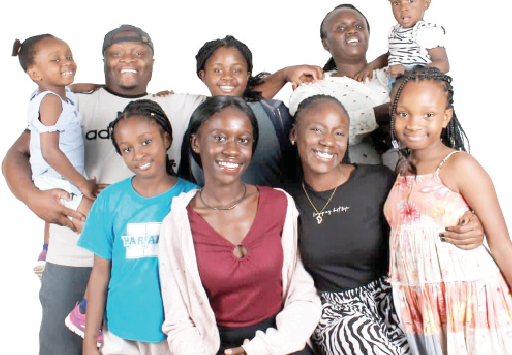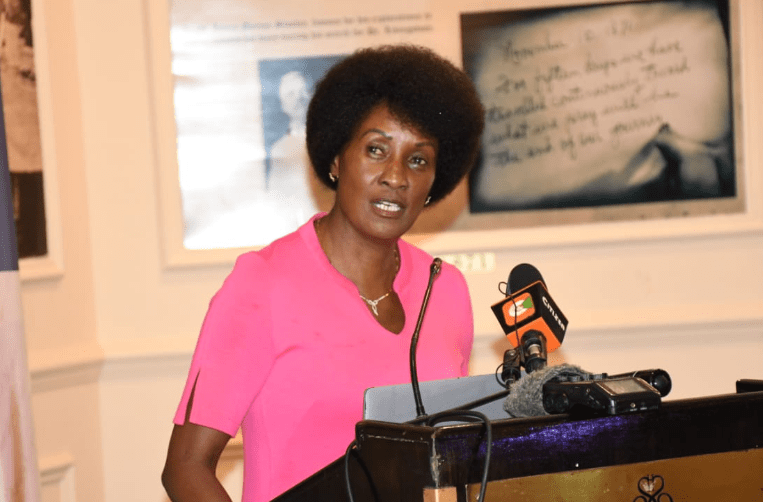Red flags to watch out for before committing to a blended family

As the world changes and evolves, so have families. Blended families have become common in today’s society. But that doesn’t make them easy.
The children have already spent time growing and developing with their respective parents. When they try to blend with a new stepparent, or even with other children from the step-parent, there’s bound to be some kinks along the way.
“Families are changing. I work with people and witness the changes in human consciousness or awareness. Human beings today are not at the level our grandparents and great grandparents were at. More and more people are waking up to their personal independence and that has contributed to a lot of the changes being witnessed such as the breakdown of the marriage institution that was largely held together by putting communal or societal beliefs and practices ahead of those of the individuals,” explains Susan Catherine Keter, a transformational life coach.
Baggage or bonus?
She adds, “More and more people are walking away from marriages that are not fulfilling, and venturing into new unions. That has contributed to a growth in blended families.”
George Bongo, a father of seven says the beauty of being in a blended family lies in the creation of a new and extended family.
“I was privileged for not only having a partner, but also two children of my partner from the previous relationship. This allowed me to form a relationship and bond with the children and gave me a new and expanded sense of family,” says Bongo.
He shares how he never experienced difficulties in dealing with his partner’s children. “Conflicts were definitely there mostly on normal issues of life in the family since we all have different parenting styles and different ideas on how to raise children. Despite these challenges, I have had a rewarding and fulfilling experience. The bond that I have formed with all my children has given me a deeper appreciation of the importance of family and I feel grateful for the opportunity to be a part of their lives.”
As a young boy, he also grew up in an extended family set-up. He offers: “My grandfather, Mzee Mugenda from Mt Kenya region had three wives and my father also had the same number of wives. My maternal grandfather, Mzee Bongo from Mombasa also had three wives. It was a unique experience growing up, a household filled with love and laughter, but with equal measure of challenges and complexities. The dynamics were always different from the typical nuclear family. There were many siblings and stepsiblings, and to make it worse, cousins from every corner of Kenya. But I must admit that there was communication and respect for each other’s boundaries. This was not always easy as it mostly depends on how strong the man of the house is to command respect and keep peace in the boma.”
Even as two partners strive to make their blended family work out, there is need to look out for major red flags, which could put a strain on the family.
Keter offers: “Unhealthy co-parenting dynamics with the other partner could be a danger to your family. Baby mama/baby daddy drama will drain you and probably ruin your relationship, so you may want to protect yourself. There is also need to be on the look out for unhealthy relationships including with the larger family as you don’t want to be dragged into family dramas.”
Listen, speak, observe matrix
To resolve any conflicts that may arise in a blended family, the expert concurs that communication skills are important.
“I always say that human beings have one mouth, two eyes and two ears for a good reason. They should be used in that order. As a parent in a blended family, listen more, observe more and talk less. You need to be intentional about nurturing relationships and for that to happen you need to be a good communicator,” she says.
She shares the importance of involving all family members in decision-making and boundary setting, especially about sensitive areas such as discipline. “Don’t impose your ways on others without involving them. I would really recommend that all parents and more so, those in blended families to invest in at least basic understanding about Adverse Childhood Experiences (ACEs). Children in blended families most likely have lost some loved ones, whether through separation, divorce or death,” she advises.
Before you commit yourself to a blended family, Peris Wambugu, a transformational life coach says it is important to consider whether you have healed from the past relationship. If not, then you are likely to drag the same baggage that may have caused the breakdown of your marriage into the next one.
“Even as we look at red flags, it is important to look at ourselves first— look inwardly. Have you healed from the pain and bitterness, the blaming and whatever else you went through in the past or shall you be the ones to bleed on the people you meet in the new union. In that marriage you are getting into, is that spouse healed from their own baggage, and from the bitterness, anger, loss of a spouse or whatever other issue from the previous marriage. Healing for both partners is critical, so that then you can look at the challenges that come your way objectively rather than through the lenses of your broken self,” Peris explains.
It is also important to know the person you are getting married to well. What are their values, have they opened up to what led into the breakdown of the first marriage, are they open about the part they played in the breakdown of the marriage. If they are, how have they improved themselves to ensure the same doesn’t repeat itself.
Pertinent questions
“There is also need for both partners to prepare their children for this transition. How are you ensuring that they still have time to bond with their biological parents who are not with them? What steps are you taking towards healthy co-parenting? Property is also a huge consideration. When you remarry, what hold of the others property do you have? Are you being coerced or forced to transfer your property to this other spouse. How will you budget for your own individual children or will you budget together? Will you invest together or separately?” Peris poses.
The expert says it is important to look out for partners, especially men who are just looking for caregivers for their children since they neglect the wife in all fronts and her companionship needs.
“Also look out for women who are only looking for sponsors. Basically, a man to provide for her children only. This is a recipe for disaster,” she adds.
George says children in blended families can have a significant impact on the success of the family. “Parents should avoid showing favouritism towards one child over another as this can cause resentment and undermine relationships within the family. Teach the children to respect the feelings of each other and allow them to learn to love one another generically,” he says.











